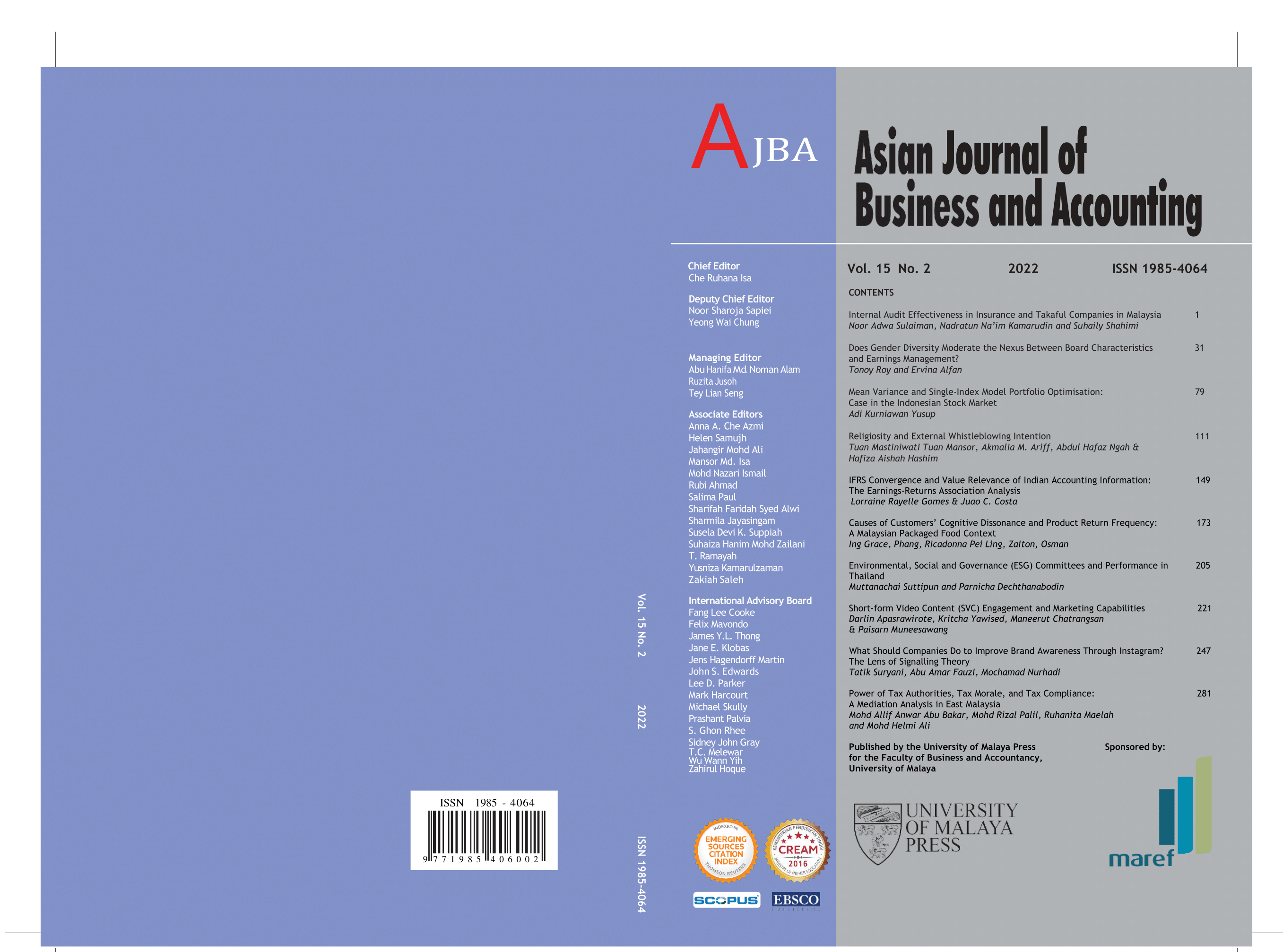Causes of Customers’ Cognitive Dissonance and Product Return Frequency: A Malaysian Packaged Food Context
DOI:
https://doi.org/10.22452/ajba.vol15no2.6Keywords:
Cognitive dissonance, Return frequency, Return policy, Customer opportunism, Switching barriers, Customer expectation and attitudesAbstract
Manuscript type: Research paper
Research aims: The cost and frequency of purchased product return are
of considerable concern to marketers and retailers. This paper examines
the post-purchase cognitive states that influence product return and the
drivers that cause cognitive dissonance.
Design/Methodology/Approach: A total of 208 valid responses were
collected and analysed using SPSS v.22 and SmartPLS 3.2.8 software.
Research findings: The findings indicate that emotional dissonance and
product dissonance were the main contributing factors determining
product return frequency. Switching barriers, customer opportunism
and customer attitude significantly affected the level of dissonance; the
consideration of liberal return policies and customer expectations of
product did not. Findings support the mediating hypothesis of emotional
dissonance, and show that product dissonance significantly affects
emotional dissonance. Importantly, emotional dissonance has a larger
impact on product return frequency than product dissonance.
Theoretical implications: This study expands upon the existing literature
by providing valuable insight into understanding the external and
internal factors contributing to cognitive dissonance and product return
frequency. Importantly, the study contributes to the conceptualisation of the mediating role of emotional dissonance in consumer behaviour,
particularly in the retail context.
Practitioner/Policy implications: The findings are useful in assisting
grocery marketers in designing and implementing effective customer
retention strategies and loyalty programmes. Pairing of right perceptions
about product quality, quantity and volume with cost would be effective
to reduce emotional dissonance, and retailers could highlight exclusive
product offerings to reduce product dissonance.
Research limitation/Implication: Future studies could take into account
the influences of demographic variables and various communication
platforms which might cause differences in consumers’ product return
behaviours. This study only presents the findings of a cross-sectional
study. A longitudinal study could be conducted to compare consumers’
product return patterns and cognitive dissonance over a longer time
frame.








